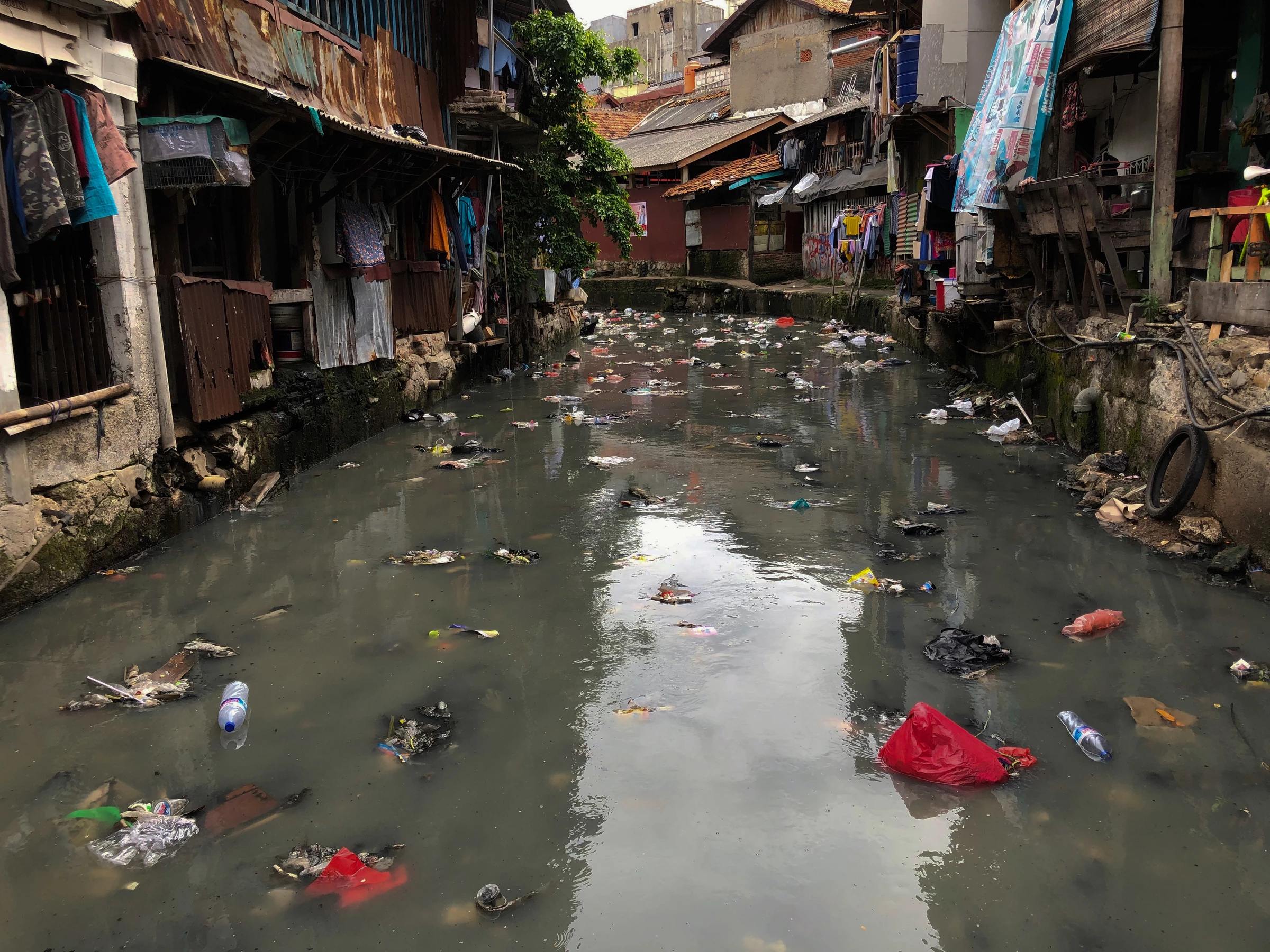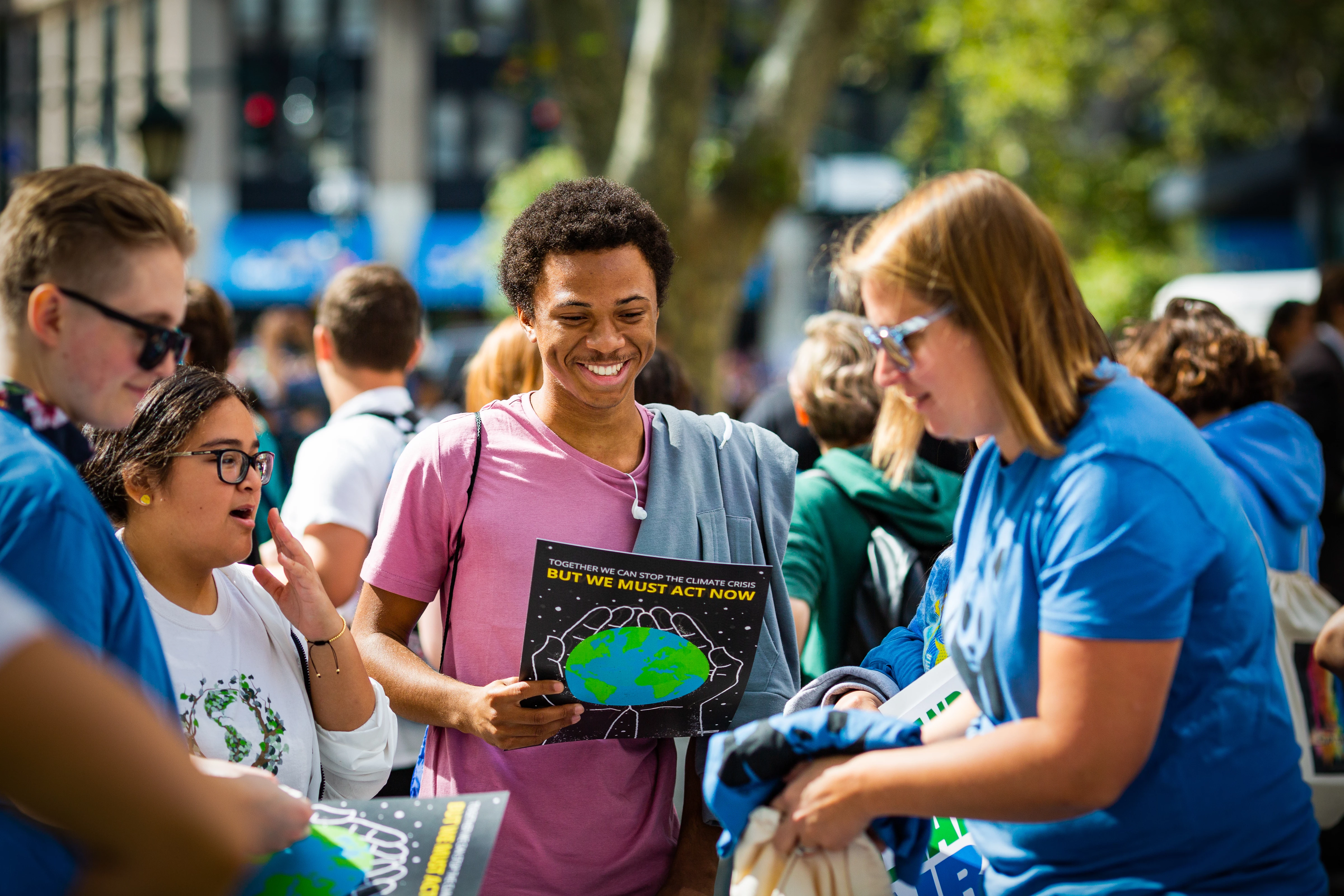The new generation is not accepting our slowness
On the 22nd of April we celebrated Earth Day, the anniversary of the birth of modern environmental movement in 1970. But of course, there was not a lot to celebrate for it is a sad day because the need for environmental movements grows every day.
An article in a Dutch newspaper caught my eye that same day and proves that there is still so much work to be done. It covered the state the Buringaga River, also called the Old Ganges in Bangladesh. Once, people used to bathe and drink from this river and irrigate their lands. Now it is one of the most polluted rivers in the world, black in colour, has a terrible odour and makes your eyes itch.
Although the water is not suitable for irrigation, farmers use it because there is no alternative, causing serious soil pollution and impacting food safety. This pollution is caused mainly by leather tanneries and textile dyers. After China, Bangladesh is the largest textile exporter in the world and host thousands of suppliers to the global apparel brands where we buy our clothes from or own shares in. The sad truth however is: our generation is too slow in healing the planet.

A polluted river in Asia (not the Buringaga River)
Global economies and nature positivity
Which brings me to a meeting I attended earlier this week. At the Purpose XL event I was listening to Paul Polman, ex-CEO of Unilever and SDG advocate within the global corporate sector. Paul shared quite a gloom and doom story on stage about how global economies are not on track to become nature positive and net zero by 2030 and 2050 respectively.
Being the vice chair of the Global Compact I had hoped he would have brought some optimistic news about a significant movement among his 22.000 (mainly) corporate members. The UN Global Compact will turn 20 next year. Surely that is plenty of time to act and comply with their 10 principles and avoid issues like the dead Buringaga river in Bangladesh. TheGlobal Compact states that ‘by incorporating the 10 principles into strategies, policies and procedures, and establishing a culture of integrity, companies are not only upholding their basic responsibilities to people and planet, but also setting the stage for long-term success’.
Turning to younger generations
Paul shared one sign of hope; within some of these companies there is a younger generation that is considering quitting consciously, because their employers are not moving the needle fast enough. Hajar Yagkoubi, Co-founder of Network 2100 and Former UN Youth Representative was on stage, had a chat with Paul and confirmed that her generation will challenge the laggard companies more and in different roles, as new employees, activists or shareholders.
The 2100 network is a group of young and current executives who strive for broad prosperity from their positions. Diverse aspiring and established executives come together within 2100 to learn and work on leadership for the new economy, the impact economy. So, Generation Z is a force to reckon with, and boardrooms are paying attention. This gave me hope.

Enriched green finance community
The following day confirmed this. I had a great dialogue with a room full of MBA, economy and accountancy students at the Free University in Amsterdam about nature-positive and sustainable finance. They had good and significant questions about the additionality of impact investing, greenwashing, and transparency. Their impatience, their need for more transparency, their curiousity, and the power they clearly hold, made me optimistic.
A new generation Z is enriching the green finance community as we speak. They will definitely come with great ideas and help transition the current systems to net positive. I would like to encourage them to be ambitious and continue to ask these significant questions. Also, current leaders; don't be complacent, be ambitious & act now! For the younger generation may be asking good questions, but the older generation is the one with most power. With that comes the responsibility to act (now).
